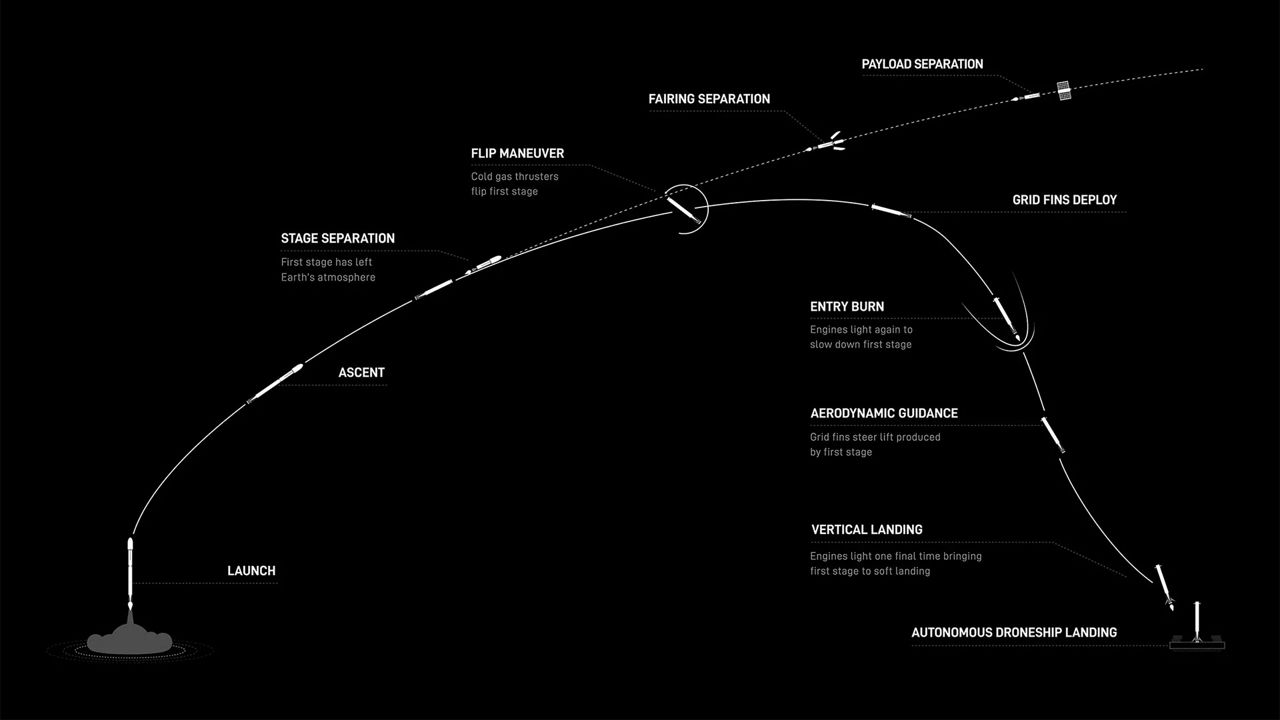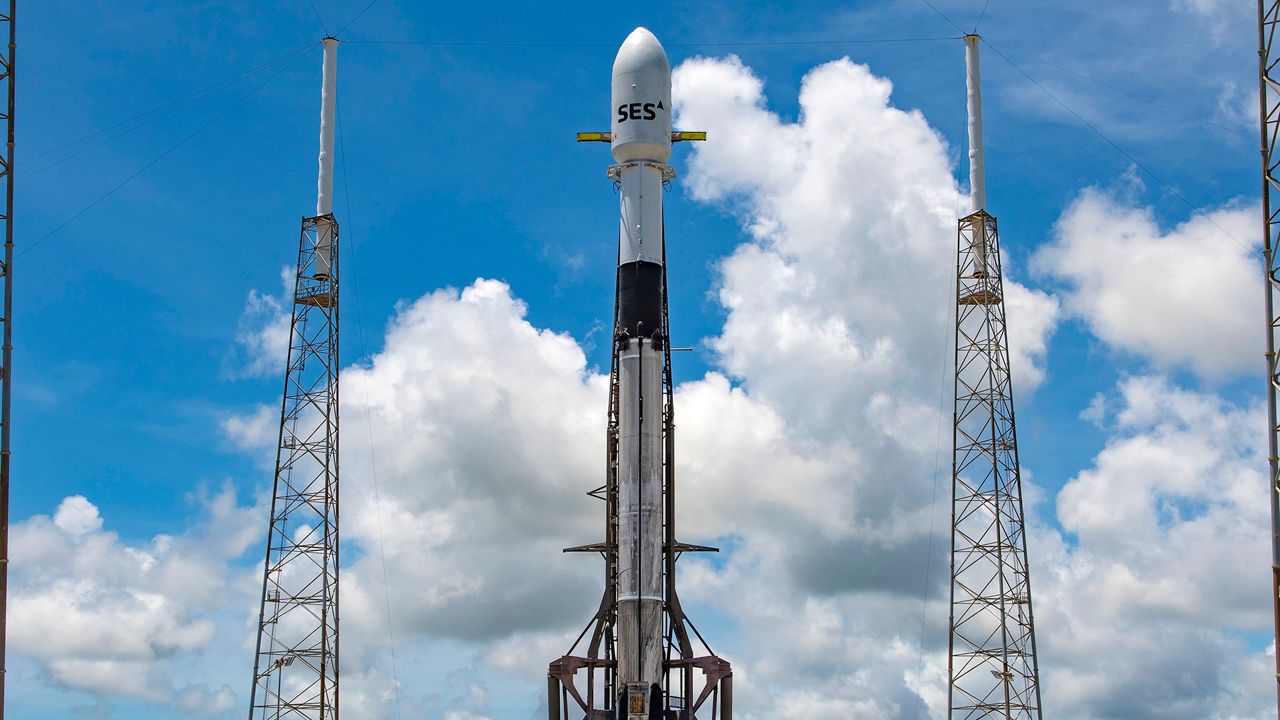CAPE CANAVERAL SPACE FORCE STATION — SpaceX is targeting Thursday evening for its launch of a European broadcast satellite after having to postpone liftoff twice because of poor weather conditions.
What You Need To Know
- The launch will take place from Space Launch Complex-40 at Cape Canaveral Space Force Station
- The SES company's ASTRA 1P will provide TV channels to parts of Europe
The mission was set to launch from Space Launch Complex 40 at Cape Canaveral Space Force Station on Tuesday, but after a delay, it was eventually scrubbed and pushed to Wednesday night. Poor weather conditions forced SpaceX to scrub the second attempt, too.
The two-hour and 49-minute window opens at 5:35 p.m. ET. Thursday for the launch of its Falcon 9 rocket carrying SES's ASTRA 1P satellite to geosynchronous transfer orbit, the company stated.
If needed, a backup opportunity is available on Friday, June 21, at the same time.
For Thursday evening’s launch, the 45th Weather Squadron is giving a 60% to 40% chance of good liftoff conditions, meaning the conditions will worsen throughout the night.
The concerns against the launch are liftoff winds and the cumulus cloud, anvil and lightning rules.
Going up
This will be Falcon 9's first-stage booster B1080’s ninth mission. The eight missions it has completed already are quite impressive, including two crewed assignments.
- ESA’s Euclid telescope
- Ax-2 crew mission
- Starlink 6-11 mission
- Starlink 6-24 mission
- Ax-3 crew mission
- CRS-30 mission
- Starlink 6-52 mission
- Starlink 6-62 mission
After the stage separation, the first-stage rocket is set to land on the droneship Just Read the Instructions that will be in the Atlantic Ocean.

About the mission
SES, a Luxembourg-based telecommunications company, stated the ASTRA 1P is a wide-beam satellite that will provide private and public broadcasters across Germany, France and Spain with satellite TV channels.
“ASTRA 1Q, a next-generation digital satellite with both wide beams and high-throughput spot beams, will be able to support direct-to-home … operations like ASTRA 1P,” stated SES in a 2021 press release.
The Ku-band satellite will find a geostationary home at 19.2 degrees East.
SES contracted Thales Alenia Space to build the ASTRA 1P and another satellite, the ASTRA 1Q.
Excitement is building as our ASTRA 1P satellite prepares for its journey into space! 🛰️
— SES (@SES_Satellites) June 12, 2024
As the most powerful wide-beam satellite to orbit at 19.2 degrees East, #ASTRA1P will deliver superior reliability and unparalleled image quality for #broadcasters and #content owners in… pic.twitter.com/SFCe9bgz42



